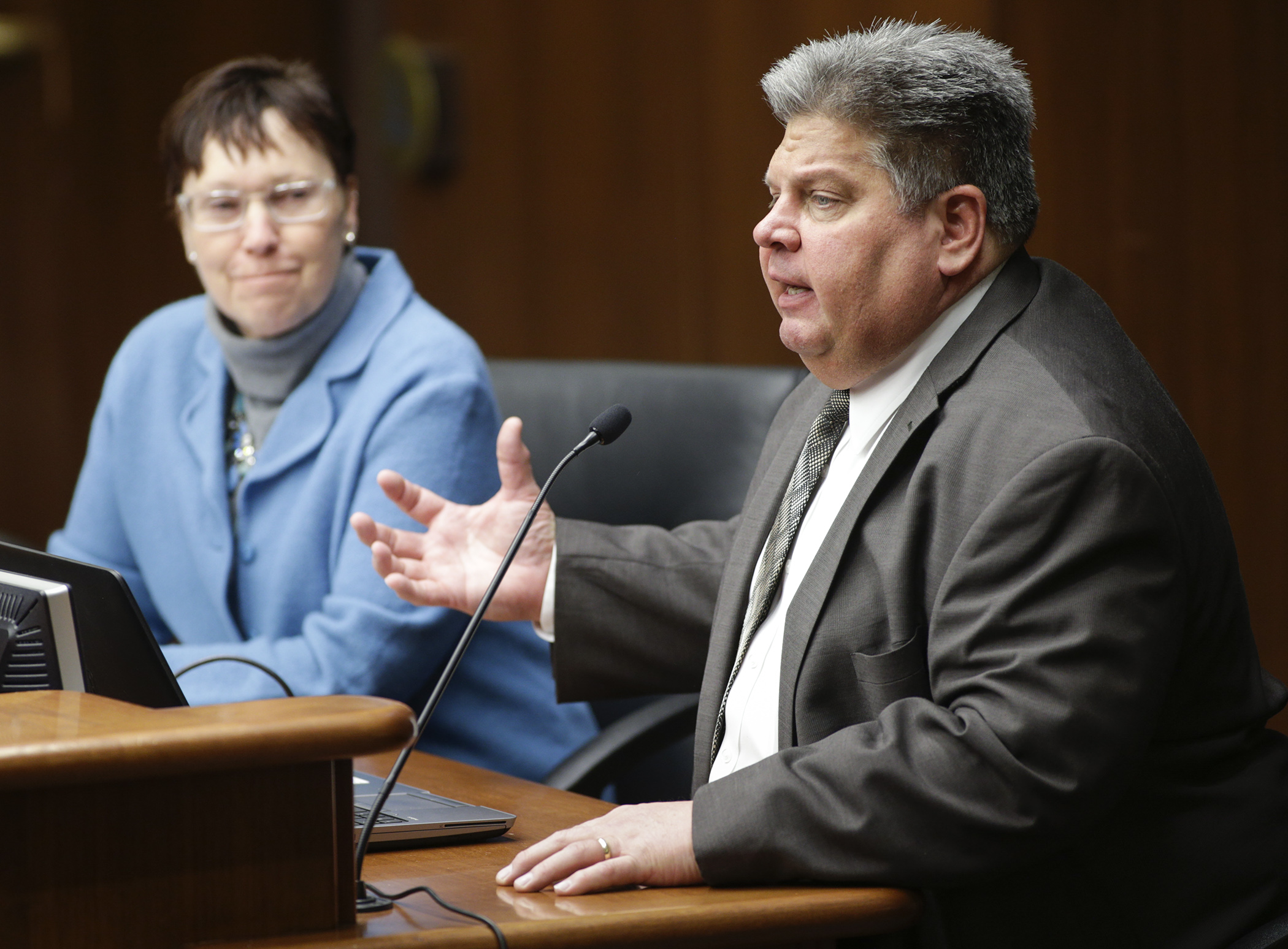Lawmakers consider higher ethanol standard, E15

Minnesota could become the first state to adopt a higher ethanol blend standard.
Rep. Jeanne Poppe (DFL-Austin) sponsors HF3699 that would require fuel retailers to increase the ethanol in most gasoline sold in Minnesota to 15% (or what’s commonly called E15); currently, a 10% ethanol blend (E10) is generally required. The bill would also require fuel retailers to have at least one hose dispense E10 because pre-2001 vehicles cannot use E15.
Approved Tuesday by the House Agriculture and Food Finance and Policy Division it was sent to the House Commerce Committee.
Poppe, the division chair, said Minnesota was the first state to require biofuel blends in 1997, and would become the first state to increase the standard. She said the change would be good for corn farmers and the state could easily meet the increased demand with instate production.
Nine out of 10 cars on the road can use the 15% blend, Poppe said.
Some Republicans said they’re supportive of E15, but don’t like mandating it. Rep. Tim Miller (R-Prinsburg) said a mandate pits one group against another and he hopes the stakeholders can work out an agreement. Poppe said stakeholders plan to meet Thursday to address concerns.
Deputy Agriculture Commissioner Andrea Vaubel said the department supports the E15 standard, and Gov. Tim Walz is a staunch supporter of biofuels.
Brian Thalmann, chair of the Minnesota Corn Growers Association, said the ethanol industry is crucial to farmers’ vitality and the state. Ethanol producers lower carbon emissions compared to gasoline, and Minnesota has long been a national leader in biofuel policy, he said.
The state would still export two-thirds of the ethanol it produces, Thalmann said.
“The corn is already being produced in Minnesota,” he said. “The time is right, the time is now.”
Erik Osman, plant manager of the Bushmills Ethanol Plant in Atwell, said his is one of 19 ethanol plants in Minnesota, but three have closed and the state could lose more “at the rate things are going.”
He supports the bill but said Minnesota is using about 29% of its corn crop for ethanol, and should use more of its corn, as do neighboring states, to generate more wealth here.
Stu Lourey, government relations director for Farmers Union, said it strongly supports the bill and has long supported biofuels. “In agriculture we really need certainty right now,” he said.
Erin Roth, executive director of the Minnesota/Wisconsin Petroleum Council, said its members are the top purchaser of fuel and some own ethanol plants, but the group is against the bill’s mandate because it’s “anti-consumer choice.”
He said E15 has lower fuel economy, and 70% of vehicles weren’t made to use the fuel, although the Environmental Protection Agency says vehicles made since 2001 can do so. Additionally, the E10 pump limitation could be problematic because many small towns only have a couple of gas stations, Roth said.
Rick Dehn, vice president of the Minnesota Petroleum Marketers Association, said his members operate and own most of the state’s 2,000 convenience stores and have concerns about E15 availability, compatibility of underground fuel storage tanks and a potential increase in liability.
Mike O’Brien, vice president of market development for Growth Energy, said consumers save two to 10 cents per gallon on E15 with no loss in performance or gas mileage.
The companion, SF3605, is sponsored by Sen. Torrey Westrom (R-Elbow Lake), and awaits action by the Senate Commerce and Consumer Protection Finance and Policy Committee.
Related Articles
Search Session Daily
Advanced Search OptionsPriority Dailies
Ways and Means Committee OKs proposed $512 million supplemental budget on party-line vote
By Mike Cook Meeting more needs or fiscal irresponsibility is one way to sum up the differences among the two parties on a supplemental spending package a year after a $72 billion state budg...
Meeting more needs or fiscal irresponsibility is one way to sum up the differences among the two parties on a supplemental spending package a year after a $72 billion state budg...
Minnesota’s projected budget surplus balloons to $3.7 billion, but fiscal pressure still looms
By Rob Hubbard Just as Minnesota has experienced a warmer winter than usual, so has the state’s budget outlook warmed over the past few months.
On Thursday, Minnesota Management and Budget...
Just as Minnesota has experienced a warmer winter than usual, so has the state’s budget outlook warmed over the past few months.
On Thursday, Minnesota Management and Budget...